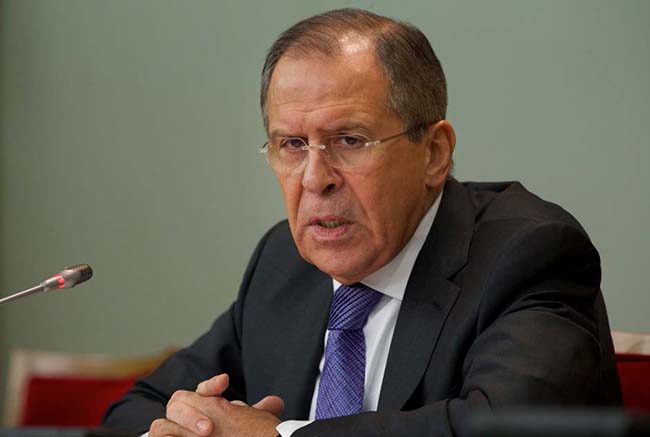Given the new moves, it seems that Moscow is seeking to play a major role in the country by boosting military and economic cooperation with Kabul. However, it follows a series of cooperation in last 15 years for example cancellation of Afghanistan’s remaining debt around 891 million US dollars, delivery around 20,000 AK-47 rifles and ammunition to the Afghan interior ministry and training of some 250 Afghan police. Also, Cooperation in Kabul Prefabricated Housing Factory, that had produced the apartment blocks for Kabul’s ‘Microrayons’ and housing projects in Mazar-e Sharif, received 25 million US dollars in new equipment from Russia. Thus, Russian companies took part modernizing Naghlu dam east of Kabul (a contract valued at 32.5 million US dollars), and building electricity generating facilities in Badakhshan, Parwan, Paktia and Bamyan and a 3G mobile communication network in northern Afghanistan and also comprising some other minor aids.
According to a statement from the Ministry of Foreign Affairs (MoFA), Salahuddin Rabbani is on a visit to Moscow on an official invitation from his Russian counterpart Sergei Lavrov, whom he will meet on Tuesday to have in-depth discussion on various issues. The statement further stated that the two sides will hold talks on political, technical, military, economic, trade and cultural issues. The two sides will also hold talks on other issues including the shared security challenges and issue of the drugs, the statement said, adding that the issue of mutual cooperation on international conventions and conferences will also be discussed. The planned visit by Minister Rabbani to Russia comes as reports emerged recently suggesting growing contact between Russia and the Taliban group.
In the meanwhile, Moscow announced readiness to boost support to the Afghan security forces in their campaign against Daesh, the Russian foreign ministry has said. They also offers 485 scholarships to Afghans including 185 military and 300 civil education scholarships to Afghan students and reiterated continued support to Afghanistan. On the other hand, the Afghan Ministry of Interior (MoI) has said that Afghanistan supports any move that can help eliminate the terrorist group in the region and the world. “We welcome any move which can help to weaken terrorist groups especially Daesh. But we should not forget that the Afghan security forces have inflicted major blows to Daesh,” said MoI deputy spokesman Najib Danish.
This happens after several times concerns raised by Russia over rise of Islamic extremism among Russia’s substantial Muslim population, in addition to separatist movements among certain ethnic groups, particularly the Chechens. Ahead of the Afghan Foreign Minister Salahuddin Rabbani’s visit to Moscow, the Russian Foreign Ministry issued the warning in a commentary released on Saturday.“We watch closely the situation with security in Afghanistan, and we are concerned about the growing combat and terrorist activities of the armed opposition,” the ministry said. It further noted that “great concerns are caused by the spread of influence” of Daesh. The ministry also highlighted the importance of relations between Moscow and Kabul in the fields of technology and military and voiced Russia’s support for the Afghan reconciliation process.
“We consider as important directions the continuing military-technical cooperation with Kabul, support in improvement of combat capacity of the Afghan national security forces, as well as training of the republic’s military and police personnel by Russian respective authorities,” it added. Russia has always been suspicious of the former anti-Soviet alliance, especially as many of its former satellite states in Eastern Europe and the Balkans accede to the North Atlantic Treaty. Unsurprisingly, Moscow is wary of the presence of so many NATO and US troops along its southern frontier. Russia supported the overthrow of the Taliban and wanted to see a stable government emerge in Kabul. It allowed the US and its partners to set up bases in its “near abroad” in Central Asia—Uzbekistan and later Kyrgyzstan—and allowed for the transport of supplies through Russian territory.
Outside its borders, Russia is concerned about the growth of Islamism and terrorism in its traditional sphere of influence or “near abroad”—the Balkans, the Caucasus, and Central Asia. Many militants from these areas have significant ties to the Taliban, al-Qaeda, or other groups in Afghanistan, and therefore its interest demands not to see Taliban comeback in Kabul or a failed state emerge in Afghanistan. While the Kremlin may disapprove of NATO’s presence along its southern frontier, it does not want to see Afghanistan become a safe haven for a separatist, terrorist, or Islamist forces.
While some circles claim that over the past fifteen years, Kabul has failed to come up with a strong strategy to mend ties with Russia. Karzai and Ghani both are blamed for their failure to mend relations with Russia over the past fifteen years.“The uncle of Mr. Karzai (former Afghan president Hamid Karzai) was serving as ambassador there and he also failed to bring the ties back on track. Now that Dr. Ashraf Ghani appointed his uncle there, he also disappointed our neighbor; we heard that for a long period of time he stayed in Kabul and did not return to Russia,” said Sayed Eshaq Gailani, chairman of the Nahzat-e-Hambastagi Milli Afghanistan party. But Afghanistan’s Ministry of Foreign Affairs (MoFA) believes that the complexity of the issues in the region cannot be resolved by a single country.“It is not the question of foreign policy failure, security in the region is much more complicated and it is difficult to address these issues only through foreign policy. Main parts of the security aspects in the region are related to wider international issues and these issues are outside the circle of Afghanistan’s foreign policy,” said Faramarz Tammanna, head of Afghanistan Center for Strategic Studies at MoFA.

